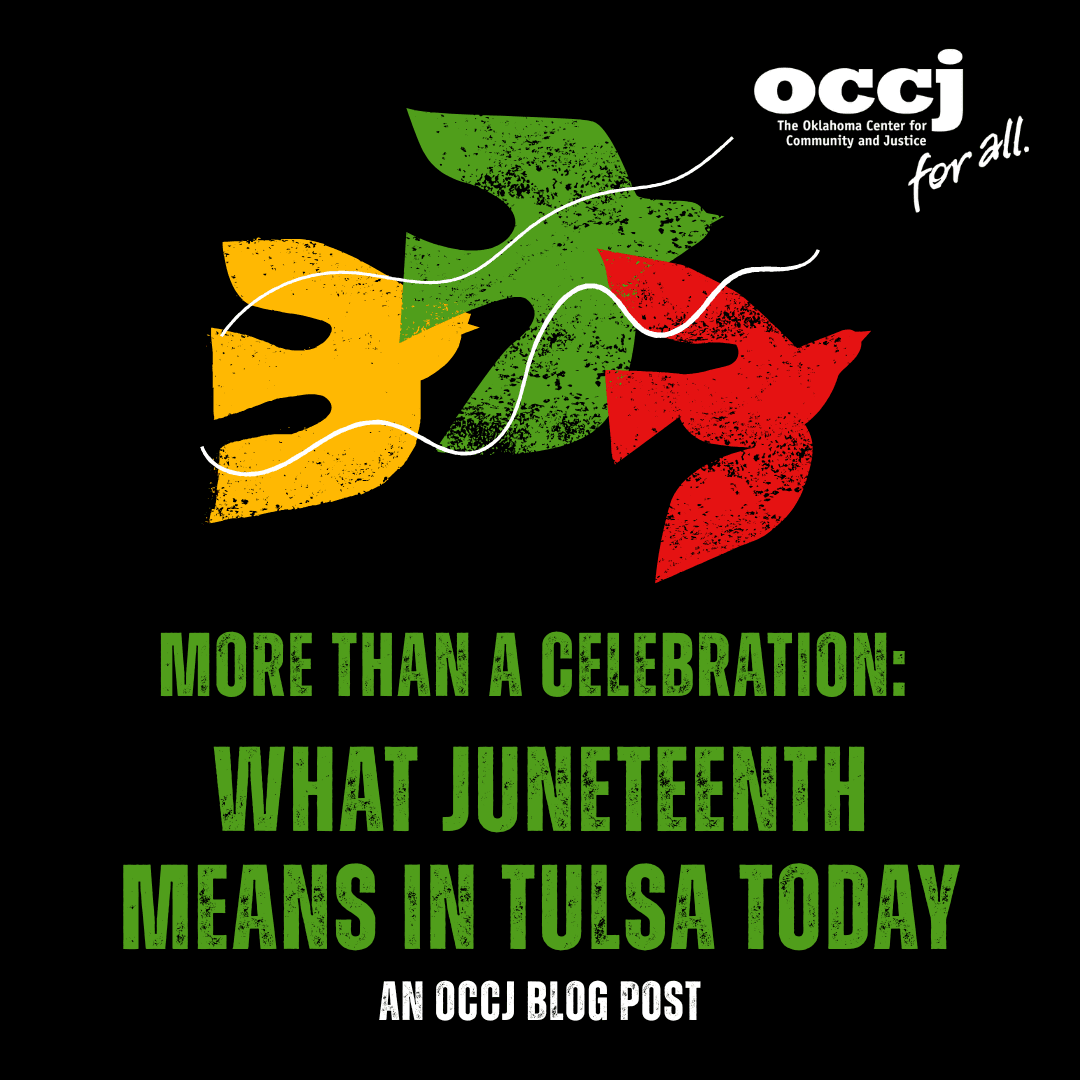
In just a few days, people across the nation will be celebrating Juneteenth. Officially recognized as a federal holiday in 2021, Juneteenth is observed annually on June 19th to commemorate the final enforcement of the emancipation of enslaved African Americans. On that day in 1865, Union troops arrived in Galveston, Texas, to announce that all enslaved people were free, more than two years after the Emancipation Proclamation. More broadly, Juneteenth invites reflection on and celebration of Black history, culture, and resilience in the United States.
Although Juneteenth only recently became a federal holiday, it has been observed by Black communities across the U.S. since 1866, just one year after emancipation was announced in Texas. In recent years, particularly following the 2020 murder of George Floyd and the global reckoning with racial injustice, Juneteenth has gained wider recognition among people of all backgrounds. Across the country, communities come together to celebrate Juneteenth with festivals that honor Black history and uplift the ongoing contributions, resilience, and achievements of Black individuals and communities. The day centers on reflection, education, celebration, and activism, often featuring parades, music, readings, food, and cultural events.
If you’re wondering, “This all sounds meaningful, but where do I fit in?”, it’s time for a history lesson: In recent years, classroom discussions of U.S. racial history have faced increasing restrictions, and many schools no longer teach about the 1921 Tulsa Race Massacre. This devastating act of racial violence only began entering school curricula within the past decade, and yet in some areas, it has already been removed again. But this history is central to Tulsa’s identity and healing process, and it must be remembered.
On May 30, 1921, a 19-year-old Black shoe shiner named Dick Rowland was accused of assaulting a 17-year-old white elevator operator named Sarah Page in a downtown Tulsa elevator. There was no evidence to support the allegation, and Ms. Page herself never pressed charges. Nevertheless, the rumor fueled racial tensions. On May 31, a white mob gathered outside the courthouse where Mr. Rowland was being held and demanded his lynching. In response, Black residents of Tulsa arrived to protect him. A confrontation broke out, and after shots were fired, chaos ensued.
Over the next 24 hours, white mobs looted, burned, and destroyed Tulsa’s Greenwood District, an area known as “Black Wall Street” for its economic success and thriving Black-owned businesses. An estimated 100 to 300 people were killed, thousands were left homeless, and more than 35 square blocks were burned to the ground. Over 1,000 homes and businesses were destroyed, devastating one of the most prosperous Black communities in America.
The massacre was deliberately covered up for decades. It was omitted from textbooks, ignored in official records, and silenced in public discourse. Survivors and descendants received no reparations, and many Tulsans were unaware of the tragedy until recent years. But unearthing and confronting these painful truths is essential for justice, healing, and progress. If we fail to acknowledge the past, we cannot fully repair the damage or move forward as a unified community.
With this history in mind, Juneteenth offers a powerful opportunity for modern-day Tulsans to reflect, reckon, and rebuild. It’s a time to embrace truth, honor Black resilience, and support Black excellence. This year, there are many opportunities for community involvement:
- On June 14th, the “Legacy & Luxury” runway show will celebrate Black heritage and creativity, featuring some of Oklahoma’s top designers and stylists.
- From June 18th to 21st, a community-wide festival will take place on Greenwood Avenue, celebrating Black American history and uplifting Black-owned businesses that carry forward the spirit of Black Wall Street.
- Finally, a 5K and 1-mile run/walk will be held starting at Guthrie Green, taking participants through the historic Greenwood District and inviting all to engage with the area’s rich legacy.
Juneteenth is not just about the past; it’s a commitment to a better future. By learning, participating, and remembering together, we take a step toward building a Tulsa that acknowledges its history and uplifts every member of its community.
